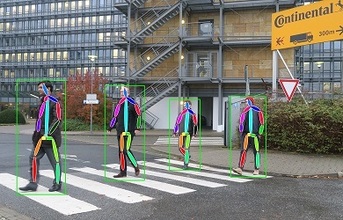
Artificial intelligence (AI) is becoming increasingly important for mobility. That is why Continental has now developed a code of ethics for the use of such self learning systems, making the technology company one of the pioneers of this industry. "Artificial intelligence can and must only be programmed and used in accordance with clear ethical principles," explains Dirk Abendroth, chief technology officer of Continental Automotive. "Smart algorithms play a huge role in the automotive industry, such as in the case of autonomous driving. As a technology company, we are responsible for ensuring that all our product developments and internal processes are in keeping with ethical standards. This is why AI-based decision-making must always be nondiscriminatory." The code of ethics corresponds with international regulations such as the EU's ethics guidelines for trustworthy AI. It applies to all Continental locations worldwide and serves as a guide for all collaboration partners of the company.
The focus of the new regulatory framework is on the transparency of computer-based decisions as well as on data security. If key work steps are taken over by computers, a basic prerequisite for acceptance is that people continue to understand how such a self-learning system works. Where is the data taken from? What processing steps lead to what actions? How is the data stored? Internally, for example in HR management, do work processes that involve the use of artificial intelligence comply with Continental's other regulations, such as those relating to equality? Such questions - and thus regulations - are essential when it comes to shaping the mobility of the future. More and more everyday functions are now almost unimaginable without AI: voice assistants in smartphones, diagnostic methods in the medical sector and navigation applications are all prime examples. Continental relies on artificial intelligence for a wide range of its products. These include camera-based driver assistance systems with object recognition, turn assist systems, and gesture recognition as a means of communication between people and vehicles. Such systems with AI functions are capable of processing vast amounts of data almost in real time and delivering better results with every bit of new information received.
END
